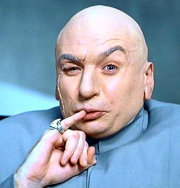RTFM
Read the manual
No one had ever heard “RTFM” before, and this formulation was funny because (at the risk of stating the obvious) it omitted the F from the expansion of the acronym. Here’s what’s funny about that: you effortlessly fill in that blank yourself, and you recognize that everyone else can too, which highlights the frivolity of that bit of prudery; and at the same time you recognize the hostility of someone who’s been asked too many dumb questions, ill concealed in a sign made ostensibly polite by the omission of what the F stands for.
“RTFM” became widespread not long after that, but every single subsequent time I saw it — on t-shirts and coffee mugs, on demotivational office posters and in e-mail signatures — and every time someone wittily quoted it to me, it was always “Read the fucking manual,” which completely misses the point. There’s no frivolous prudery on display, no conspicuously bad attempt to conceal the hostility of the sentiment. RTFM had become just an abbreviation for a crude message and a tiny bit of something important was lost from the world.
Here’s another thing: a few years after that first RTFM sign, in 1990, the movie Goodfellas came out, and there was a brief flurry of discussion on Usenet surrounding the effort made by one dedicated moviegoer to count the number of times the word “fuck” is used in the film: 296, raising Goodfellas head and shoulders above former champ Scarface (from 1983, with 207 occurrences of that word).
“Fuck” still had the ability to shock and surprise, as evidenced by the astonished reactions on Usenet to its profligate use in Goodfellas, but thanks to that film and Casino (1995: 422 “fucks”) and their ilk, that power was waning. Soon a torrent of “fucks” would be used for comic effect in The Big Lebowski (1998: 260) and then we had The Sopranos (1999), every episode of which was 20% “fuck” by weight.
The power of “fuck” is almost all gone, and that’s a shame, because what can take its place as the all-purpose strong taboo epithet? By overuse it’s been demoted to a very mild intensifier, as in “You cannot fucking believe the fucking paella at this fucking place, it’s fucking amazing.” Texters use LMFAO and OMFG without a second thought (and without pretending they stand for “laugh my ass off” and “oh my god”), and a little more of something important is lost from the world.


